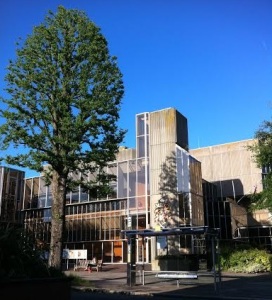The council tax debate is hotting up in Brighton and Hove. It’s not just how much we should pay – or where the cuts should fall – but whether we should vote on the final bill in a referendum.
As the Scottish referendum showed, when voters care about what’s at stake, the turnout is higher. About 85 per cent took part in the ballot on independence.
Why should we have a referendum here? It will come down to a decision by councillors at the end of next month although their positions will become clearer when Brighton and Hove City Council‘s Policy and Resources Committee meets next Thursday (22 January).
On Thursday 26 February they will vote on whether our council tax bills should go up and, if so, by how much.
If the rise is more than about 2 per cent, the government has ruled that the decision should be put to the popular vote.
Three options are on the table. The Green administration wants a 5.9 per cent rise. It won’t plug the financial hole left by the cut in government grant but it will help.
 Labour wants what is known as a threshold rise. It would mean bills going up by about 2 per cent although the exact amount would be calculated to avoid triggering a referendum.
Labour wants what is known as a threshold rise. It would mean bills going up by about 2 per cent although the exact amount would be calculated to avoid triggering a referendum.
Even with a general election and local elections due to be held on the same day – Thursday 7 May – a referendum would still cost a six-figure sum. The exact amount is disputed.
The Conservatives want a council tax freeze. In recent years the government has financially rewarded councils for freezing council tax. Critics say that the rewards are short lived and leave councils worse off over the longer term.
The other key element of this debate is how much the council has to spend. And perhaps more importantly what does that mean in real terms for the services that we often don’t even realise are provided by the council.
These include support for local charities and voluntary groups, money for children’s centres and safe staffing levels in homes for vulnerable people with learning disabilities.
Of course, there are the roads and pavements – and how long before potholes are filled, uneven paving fixed and verges mowed.
We all know when the bins haven’t been emptied. And if a council property is left sitting empty. But what about air quality? It costs money to monitor pollution, analyse the problems and try to cure them.
When things go wrong, we usually find out and often fairly quickly. We rarely hear about the many things that go well. A great deal of unsung work takes place to keep the great Brighton and Hove show on the road.
Governments over the years have imposed all sorts of statutory duties on councils. They must, for example, assess children at risk of abuse. But the funding for all these “must do” jobs has been reduced over the past few years.
Now the council is taking a hard look at pretty much everything that it does. And it’s asking for anyone and everyone – from councillors and staff to service users, experts and the general public to share their views.
The consultation is called “Stop, Start, Change”. The council wants to know what services people think should stop, which should start – especially if they generate extra income or save money from being spent in other ways – and which should change.
Modest spending on preventive services, for example, sometimes called early help or early intervention, can save the council, police and NHS from having to spend bigger sums later on.
And then there’s the council’s economic development team. It doesn’t have to have one. Likewise an international team. Some see them as a luxury and want them slimmed down or scrapped. But if they bring in more money than they cost to run, where’s the logic in doing away with them?
Not every member of the public will feel they have the knowledge or expertise to challenge the politicians and officials who deal with the complexities of council finance day in day out.
But the pool of talent in a city like Brighton and Hove will mean that there are people capable of providing fresh insights. And the sum total of our opinions can also provide a steer.
A great deal of work goes on behind the scenes to try to broker agreement between the political parties.
By the time the budget debate comes round, councillors will be asked to vote on how much council tax we will pay from April. The result will dictate the extent of cuts to come.
Help inform the debate by sharing your views. To find out how, click here and here.
This report was first published on the Brighton and Hove Chamber of Commerce blog page.








How about cutting the Poll Tax back to 1993 levels? Instead of the 300% or so above-inflation increase we’ve had since then?
How about removing the incapable and incompetent Green council from power?